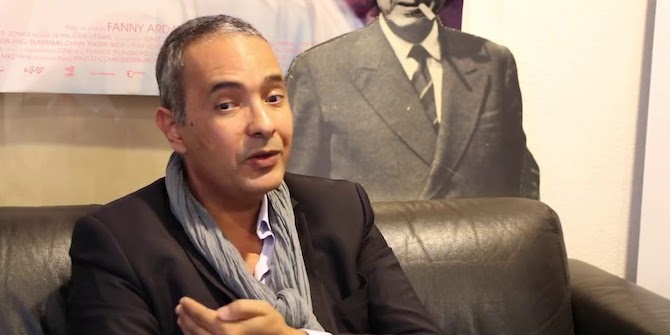by Charlie Hierons

Women’s Activism: Past and Present
With demonstrators continuing to line the streets at the start of the new decade, Algeria’s political future remains in question. While the protest movement emerged without formal leadership, women’s rights groups were amongst the first to mobilise in early 2019. Seizing a square close to the University of Algiers, feminists demanded, above all, the abrogation of Algeria’s Family Code.
This piece of legislation, inspired by religious principles, was initially promulgated in 1984 to regulate marriage, divorce, and inheritance, before being reformed in 2005. With posters appealing for the law’s outright abolition recently appearing at several sites across the country, however, reforms have evidently fallen short of expectations. Legally, spousal repudiation and polygyny remain a husband’s prerogative while women require a male guardian in order to marry. Likewise, unequal inheritance is consecrated in law and women’s access to divorce (khulʿ ) is much more restricted. On that basis, feminists have identified family law as the primary target for their campaigns.
Amidst the voices clamouring for change in the last year, familiar figures from Algeria’s past have re-emerged. Djamila Bouhired, a heroine of the liberation war (1954–62), was among those marching through the streets in 2019 to demand equal rights for women. More than half a century earlier, her participation in the war, alongside that of thousands of other female combatants, captured the public imagination and proved vital in ousting the colonial authorities. By the eve of independence, officials explicitly recognised that women’s contribution to liberation had guaranteed their full and equal rights in independent Algeria.
After 1962, however, the new state proved reluctant to deliver on its promises. When Algeria finally issued its Family Code in 1984, it confounded the hopes of many female veterans. And the failure to enact substantial reform in 2005 means that, compared to neighbouring Morocco and Tunisia, the country is now uniquely restrictive when it comes to women’s legal rights.
Reforming the Family Code
At the beginning of the twenty-first century, Algeria actually looked to be on the verge of significant liberalisation of family law. Feminist campaigns were becoming harder to ignore and even President Bouteflika had repeatedly called for change. Moreover, fears of conservative political opposition seemed to have been allayed. Following violent civil conflict in the 1990s, Islamist representation in the National Assembly had evaporated.
Regional and international pressures were pointing in a similar direction. Algeria had already committed itself through UN treaties to improving the condition of women while, across its borders, Morocco and Tunisia had recently liberalised their own family law. At risk of being left behind in the region, Algeria appeared set for major reform. That the 2005 amendments ultimately changed so little thus seemed mystifying.
How can this be explained? And what does it indicate about the prevailing political dynamics in contemporary Algeria?
My Master’s dissertation, entitled Nationalism, Islamism, Feminism: The Politics of Rewriting Algerian Family Law in the 21st Century, explores these questions through three lenses.
Algerian Nationalism and the Politicisation of Gender: Although the religious principles which inspire the Family Code have influenced legislation elsewhere in the region, in Algeria, they became acutely politicised during 132 years of French rule (1830–1962). In fact, Islamic family law was singled out as the basis for denying Algeria’s Muslims equal legal status. And, during the Liberation War, this tension reached a climax. With colonial authorities and Algerian nationalists advancing opposing visions of women’s roles, family law became a battleground in itself. Chapter Two assesses how these historical experiences influenced Algerian nationalism and the Family Code’s status in modern Algeria.
Social Conservatism in the Twenty-First Century: By the dawn of the new millennium, opposition to reform of the Family Code appeared to have waned. Yet, in 2005, the reform process witnessed a dramatic mobilisation in the press, official institutions and wider society which compelled the state to backtrack on promises of greater rights for women. Conservative success since then indicates that limited Islamist representation in the National Assembly masks a more complex reality. Chapter Three dissects how, even when absent from parliamentary politics, Islamists continue to wield influence and their discourse draws support from conservatives across state and society.
Feminism, Islam, Strategy: Feminist activism in Algeria has thus faced robust resistance. Moreover, stigmas surrounding a perceived secularist outlook and collaboration with foreign powers have limited the movement’s popular legitimacy. In comparison, women’s wings of Islamic organisations have received wider backing. With that in mind, Chapter Four investigates the obstacles faced by the women’s movement, the extent to which it has a strategic incentive to engage with religious tradition and, likewise, whether there is precedent or conceptual space for women’s rights groups with an Islamic orientation.
As with several other outstanding political issues, Algeria’s new president Abdelmajid Tebboune has so far been reluctant to comment on the Family Code. But opposition to reform, just like the mass protests, is unlikely to recede in a hurry.
Charlie Hierons won second place in the LSE Middle East Centre/Society for Algerian Studies Algerian Studies Master’s Prize 2019 for his research into the 2005 revision of Algeria’s Family Code, with his work described by the judges as ‘an original, splendidly researched, closely argued and innovative dissertation”. Connect with him on LinkedIn






